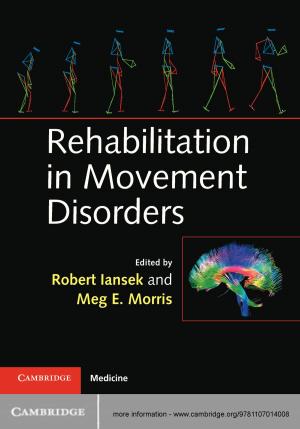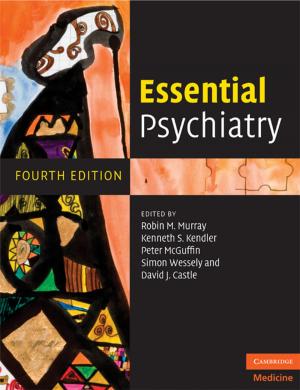Child Psychopathology
From Infancy to Adolescence
Nonfiction, Health & Well Being, Psychology, Developmental Psychology, Medical| Author: | Barry H. Schneider | ISBN: | 9781316053300 |
| Publisher: | Cambridge University Press | Publication: | December 4, 2014 |
| Imprint: | Cambridge University Press | Language: | English |
| Author: | Barry H. Schneider |
| ISBN: | 9781316053300 |
| Publisher: | Cambridge University Press |
| Publication: | December 4, 2014 |
| Imprint: | Cambridge University Press |
| Language: | English |
This textbook covers the classification, causes, treatment and prevention of psychological disorders in the infant through the adolescent years. Chapters balance the social and historical context of psychopathology with the physiological roots of abnormal behavior, leading students to a comprehensive understanding of child psychopathology. The book is totally up-to-date, including coverage of the DSM-5 and criticisms of it. In four parts, this textbook describes the empirical bases of child psychopathology as well as the practice of child psychologists, outlining the classification and causes of disorders in addition to methods of assessment, intervention and treatment. Students will be able to evaluate the treatments used by professionals and debunk popular myths about atypical behavior and its treatment. Complementing the lively writing style, text boxes, clinical case studies and numerous examples from international cultures and countries add context to chapter material. Study questions, diagrams and a glossary offer further learning support.
This textbook covers the classification, causes, treatment and prevention of psychological disorders in the infant through the adolescent years. Chapters balance the social and historical context of psychopathology with the physiological roots of abnormal behavior, leading students to a comprehensive understanding of child psychopathology. The book is totally up-to-date, including coverage of the DSM-5 and criticisms of it. In four parts, this textbook describes the empirical bases of child psychopathology as well as the practice of child psychologists, outlining the classification and causes of disorders in addition to methods of assessment, intervention and treatment. Students will be able to evaluate the treatments used by professionals and debunk popular myths about atypical behavior and its treatment. Complementing the lively writing style, text boxes, clinical case studies and numerous examples from international cultures and countries add context to chapter material. Study questions, diagrams and a glossary offer further learning support.















